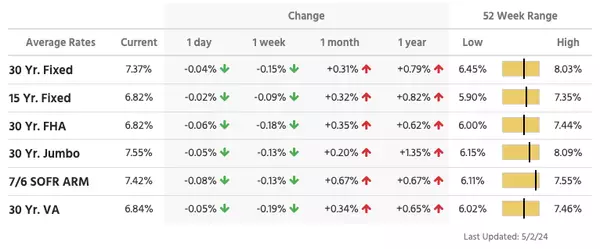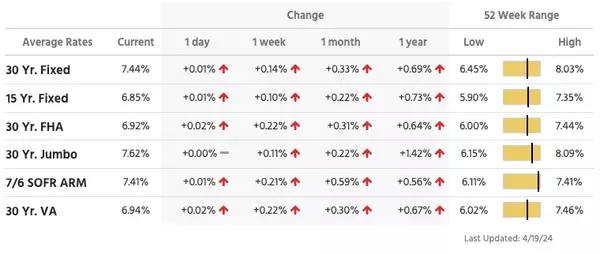The anticipated outcomes of the 2024 NAR Commission Settlement
As I am sure you have heard in the news recently, last week on March 15, 2024, the National Association of Realtors (NAR) announced the resolution of a settlement with home sellers who alleged unfair commission practices and mandatory compensation for buyers' agents. This settlement follows an extensive and expensive legal dispute for the NAR, prompting inquiries from buyers and sellers regarding its implications for future real estate transactions. It is important to note that these changes are expected to take effect by mid-July 2024 and are still subject to court approval.
Key Takeaway of the 2024 NAR settlement:
- The National Association of Realtors (NAR) will pay $418 million over the next four years to conclude legal disputes.
- This settlement addresses claims against the NAR, state and local Realtor associations, association-owned multiple listing services (MLS), brokerage firms with NAR member principals and sales volumes under $2 billion in 2022, and over a million individual NAR members, agents and brokers.
- The multiple listing service (MLS) system will no longer allow offers of broker compensation, shifting negotiations to occur privately between consumers and agents. Offers of compensation could continue to be an option consumers can pursue off-MLS through negotiation and consultation with real estate professionals. And sellers can offer buyer concessions on an MLS (for example—concessions for buyer closing costs). This change will go into effect in mid-July 2024.
- Requirement for all agents to have a written representation agreement or an Exclusive Buyer's Agency Agreement with their buyers, in states that allow, like New Jersey. This change will go into effect in mid-July 2024.
How did we get here?
The Sitzer-Burnett lawsuit, a class-action case initiated in Missouri federal court by a coalition of home sellers against the National Association of Realtors (NAR) and various defendants such as Anywhere, Berkshire Hathaway HomeServices, Keller Williams, and RE/MAX, alleged that real estate commission rates are excessive, buyer's agents are overcompensated, and NAR's Code of Ethics, MLS Handbook, and the defendants' practices contribute to inflated commission rates.
During the October 2023 trial, the plaintiffs specifically contested cooperative compensation, where a listing broker offered compensation to the cooperating broker. While NAR presented evidence supporting the benefits of cooperative compensation for consumers and emphasized its rules against anticompetitive actions to promote a free market and competition, the jury ruled in favor of the plaintiffs. NAR believes this decision was influenced by legal errors in the judge's instructions that overlooked the procompetitive advantages of NAR's policies and cooperative compensation practices.
How does the settlement affect home seller and home buyers?
This settlement would preserve the choices consumers have regarding real estate services and compensation. After the new rule goes into effect, listing brokers and sellers could continue to offer compensation for buyer broker services, but such offers could not be communicated via the multiple listing service (MLS).
How will buyer brokers get paid now?
The types of compensation available for buyer brokers would continue to take multiple forms, depending on broker-consumer negotiations, including but not limited to:
- Fixed-fee commission paid directly by the buyer.
- Concession offered from the seller at closing to the buyer broker, if offered but not required.
- A portion (%) of the total listing broker’s compensation is paid by the seller at closing as it has been in the past and current structure, if offered but not required.
- Compensation would continue to be negotiable for both buyers and sellers and should always be negotiated between agents and the consumers they serve.
What the National Association of Realtors Says
The National Association of Realtors (NAR) asserts that although the settlement is deemed the most favorable course for consumers and real estate practitioners, it refutes any misconduct allegations. The organization underscores the customary practice of a collaborative commission split between sellers' and buyers' agents as a well-established industry norm. Despite maintaining innocence, securing agreeable settlement terms offers a constructive way forward to safeguard professional integrity and consumer options. Nykia Wright, the NAR's interim CEO, has articulated that prolonging litigation would adversely impact members and their small enterprises.
Expected Impact on the Real Estate Industry
While headlines may suggest that the recent developments could impact home affordability for buyers and the intention was to decrease home prices, these narratives are likely fleeting and sensational.
It is essential to recognize that home values are primarily influenced by market fundamentals such as supply and demand, location, property condition, and recent sales data, among other factors, and agent commissions have no effect on determining property values but are an additional cost to home sellers.
Some argue that the traditional commission structure has historically facilitated buyer representation by reducing upfront costs and broadening the pool of potential buyers. The seller typically bore the commission responsibility for both their listing agent and the buyer's agent, enabling buyers to consider properties at higher price points.
Discussions on commission structures and buyer representation may evolve, potentially increasing awareness of the value of professional representation for buyers. However, the fundamental nature of the client-agent relationship and transaction processes is expected to remain largely unchanged and I feel this is a positive move that provides transparency to the industry as well as an opportunity for sellers to save money on the total sale. Conversely, it transfers additional costs to buyers who may now need to pay their agent an agreed-upon fee at closing if they choose to be represented by one. In the short term and with the current market conditions of high home prices, interest rates at or above 7%, and limited inventory this may create another layer of difficulty for home buyers to secure a home with the cost of representation now being an additional closing cost if a seller does not choose to offer a concession for that cost on behalf of the buyer.
Commission fees have always been and will continue to be negotiable, despite a standard market-determined percentage guideline or what society has deemed to believe is a required "6% fee". These fees are typically agreed upon between sellers and their listing agent and a portion of that total is shared with the buyer side agent, rather than a fixed figure. While there are cost-effective options in the market and always will be, it's crucial to compare the level of service and knowledge provided as well as the value received for both parties.
As with any service industry, quality often aligns with price. Buyers seeking representation when purchasing a home will now need to exercise some research, pros and cons comparison, and caution to ensure their needs are met effectively. Buyer's agency is a valuable asset in New Jersey, as not all states offer this representation, but as with any service, not all consumers need or will need agent representation both on the buying and selling side.
For personalized insights on how the NAR settlement may affect you as a buyer or seller in New Jersey, feel free to reach out with any questions. I am here to address your concerns and provide clarity on what to anticipate in light of these changes when the time comes or when you are ready.
Categories
Recent Posts










GET MORE INFORMATION

